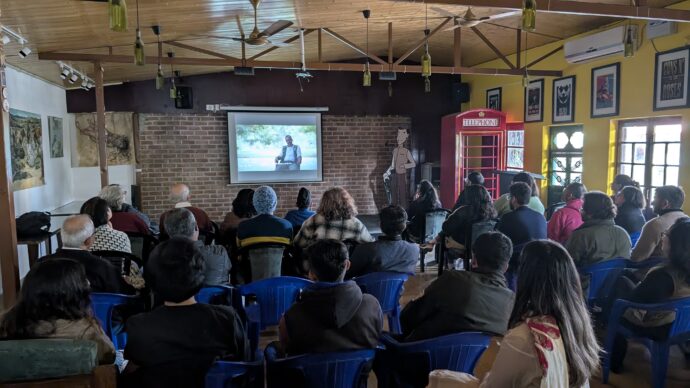independent cinema driving environmental awareness and conservation in india

Cinema has long been a transformative medium, shaping society and influencing public opinion. The audiovisual experience leaves a lasting impression on viewers, subtly steering their thoughts and actions, often without them even realizing it. When combined with themes of environmental awareness, cinema becomes a powerful tool for inspiring change and sparking critical conversations. Over the years, documentaries and films have been leveraged to educate and engage audiences, raising awareness of urgent environmental issues and motivating communities to act.
With the global urgency to protect our environment growing more acute, discussions on climate change, waste management, and conservation are gaining prominence internationally. However, real change begins at the grassroots.
We can create meaningful and sustainable impacts by fostering community-based awareness around practices like waste segregation and recycling. Cinema, with its ability to connect emotionally and intellectually with audiences, can play a pivotal role in driving these localized actions.
In a pioneering effort, Dehradun recently hosted its first-ever environmental film screening event, organized by the Waste Warriors Society in collaboration with ALT-EFF and Been There Doon That (BTDT). This one-day event showcased a series of thought-provoking documentaries and films centred on themes such as the evolving environmental landscape of Uttarakhand, lifestyle changes, coexistence, women-led conservation initiatives, and the hidden costs of unchecked growth.

The event opened with the Indian premiere of Jamna – The River Story. This documentary vividly portrays the plight of the Yamuna River, delving into issues of pollution, mismanagement, and apathy. Through the eyes of Shyam, a boatman whose livelihood depends on the river, the film offers a deeply personal narrative that resonates with the audience, leaving them to ponder the river’s future.
Other standout films included Burning Mountains, A Work in Progress, Phool Dei, and Snow Leopard. Phool Dei, a hand-drawn animated short by Kartik Mahajan, explored emotional themes of migration and the abandonment of high-altitude villages, bringing many viewers to tears. Meanwhile, Snow Leopard spurred intense discussions about human-wildlife conflict, offering both fascinating insights and controversial perspectives on coexistence.
“The power of impact cinema is immense and has the potential to create real change when combined with ongoing efforts,” remarked Aanchal Dahima, a young attendee at the screening.
Naveen Kumar Sadana, Senior Manager at Waste Warriors Society and one of the event’s organizers emphasized the event’s goal: to engage audiences and inspire them to take responsibility for environmental issues at the grassroots level. The screening attracted a diverse group of participants, including young people and professionals from varied backgrounds. Post-screening discussions centred on how such events can amplify outreach and create tangible, positive changes.

“We plan to organize similar screenings in Uttarakhand and Himachal Pradesh, involving even more people in these important conversations,” Sadana added.
Events like these highlight the immense potential of cinema to drive awareness and action. By combining the visual storytelling power of films with community engagement, platforms like these can inspire collective responsibility and catalyze change, one story at a time.
